Posted by on
29/09/2025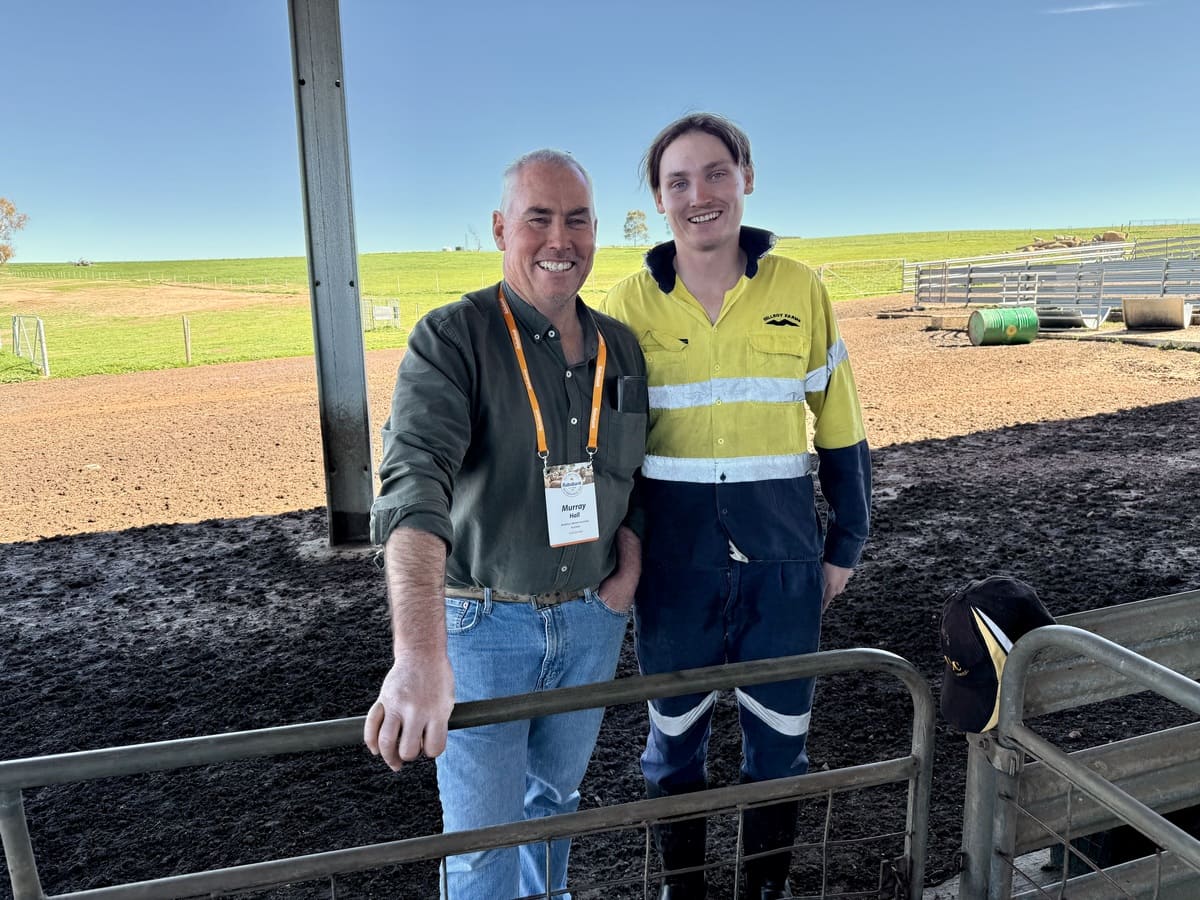
Murray Hall and son Matt.
Western Australia’s live sheep export phase-out has triggered a significant shift in the local industry, and participants on Rabobank’s recent knowledge tour gained valuable first-hand insights into how that may impact the broader domestic market.
Brookton farmer Murray Hall hosted Rabobank’s Western Australia Sheep and Wool Tour on-farm, sharing his experience, and believes it was an important opportunity to highlight the plight of the local industry.
Far reaching consequences
With 21 sheep and wool producers from across Australia and New Zealand participating on the tour, Murray generously outlined his own business position in the wake of the phase-out, and the implications at a local, and national level.
“I think the group was surprised by how narrow our Western Australian market actually is, and that there is only one climate zone we can operate in,” he explains.
“So when we’re all turning off stock, that means every producer is turning off stock, and when we’re not supplying – there is literally no supply.”
“We’re very different to the eastern states in which you have vastly different geographies – in the east you can sell up into Queensland or out to South Australia’s pastoral country, whereas here, the Pilbara and other regions are just not viable for sheep – and I think that was a real eye-opener.”
With many Western Australian producers destocking in the wake of the Australian Government’s live export decision, Murray believed the tour group gained a much greater perspective thanks to the farm tour.
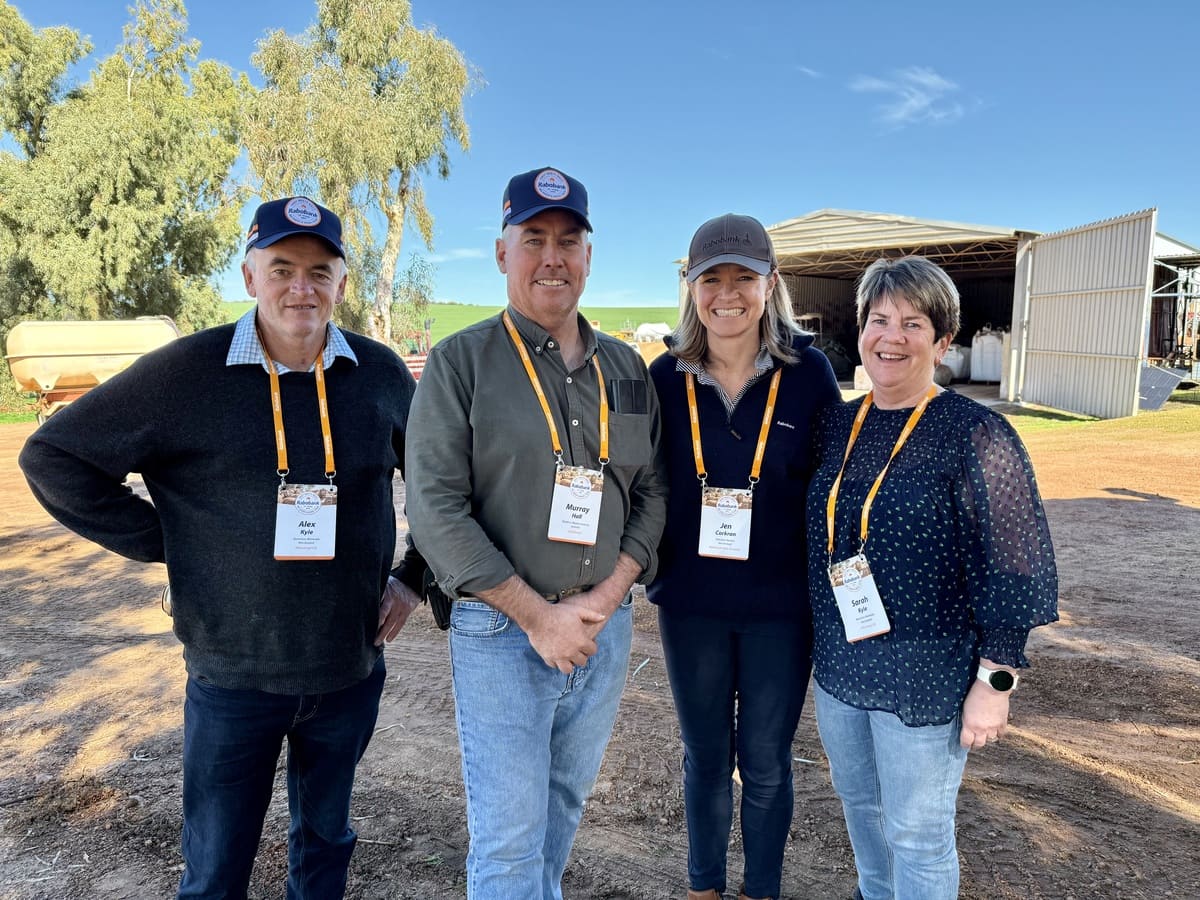
Rabobank knowledge tour participant Alex Kyle, New Zealand, with Murray Hall, RaboResearch's Jen Corkran and tour participant, Sarah Kyle, New Zealand.
“I think there was a lot of joining the dots, I don’t think out-of-state producers fully understood our risk profile, yet this opportunity ensured they could understand our increased risk with large stock positions.”
“The tour also quickly realised that there would be very limited access to Western Australian breeding stock during eastern droughts, and I think where possibly Western Australia was regarded as competition, the fact is with our seasonal and geographic limitations, Western Australia was never competition for eastern producers.”
Pivoting for long term strength
While the Hall family has rarely sold directly to the live export sheep market, its closure has wide-reaching ramifications for every producer.
“Live export certainly sets our local market conditions, and in our case it impacted our access to processors due to the fact stock were going all different directions,” he explains.
“Now all that stock will be competing at the processing point, and it’s really going to impact processor capacity.”
On his own 5,000 hectares of mixed farming, Murray has restructured the business pre-empting potential opportunity in the wake of live export ceasing.
“I’m looking at refining our existing confinement feeding and livestock cropping, so on a per hectare basis our sheep numbers are up, which will keep more breeding stock in relation to other enterprise areas on the farm."
“It means I can swing back into increased livestock production if needed to take advantage of any short to mid-term opportunities that come to pass, such as the current prices we’re enjoying.”
“We’ve made a calculated decision to redesign our business, we can’t let our numbers get below a critical mass, it’s just not justifiable with our overheads, and it becomes a real risk for processors.”
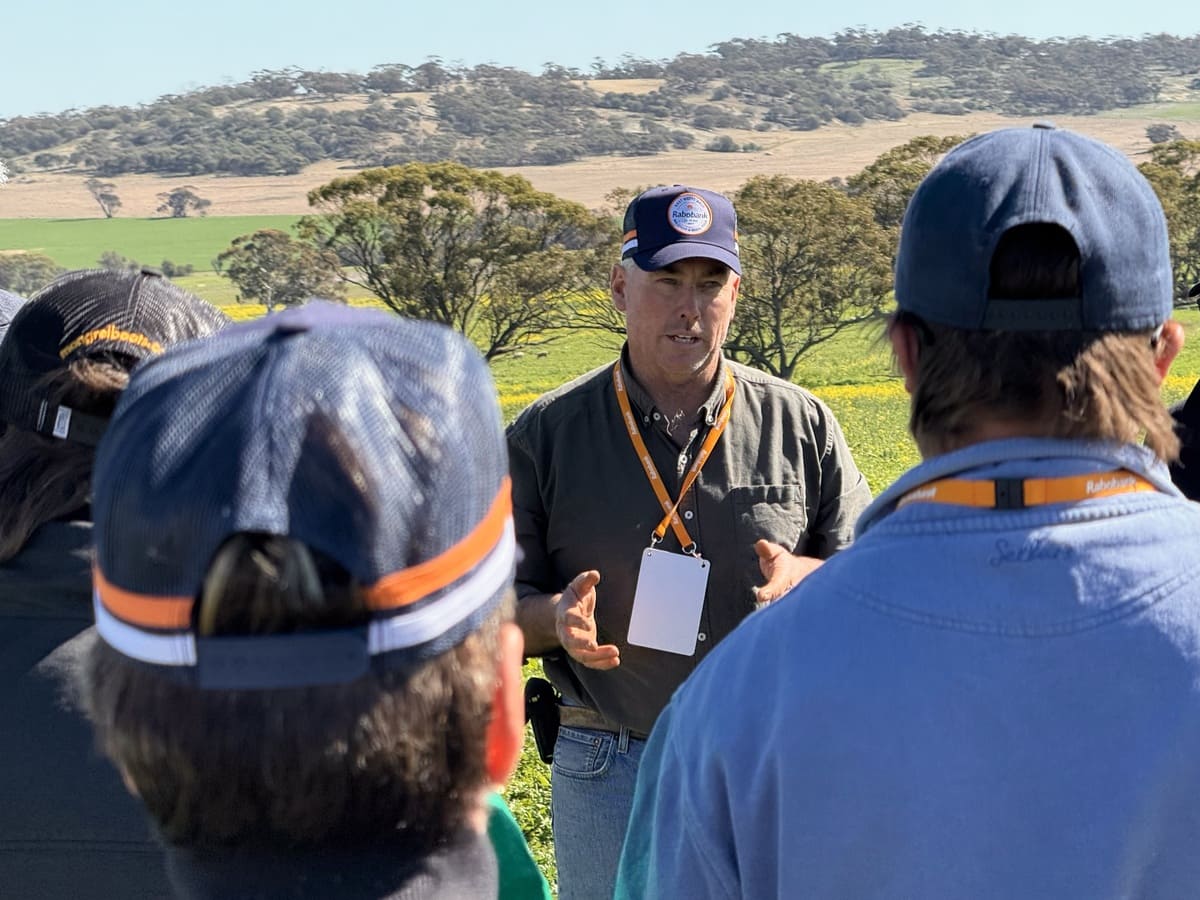
Murray sharing his insights with the tour.
Insights around the metrics used by Western Australian producers also provided the tour group food for thought.
“We spoke a lot about wool and meat production per hectare, per millimetre of rainfall, as well as stock density in our climate.”
Whilst Murray has presented to school groups and industry in the past, he admits he had to have his wits about him hosting the Rabobank Knowledge Tour.
“I knew this group would know its stuff, and there was a real maturity amongst the cohort in regards to self-analysis on the cost centres, profit attributes and trigger points within their own regions, yet all with a focus on cash flow and animal welfare.”
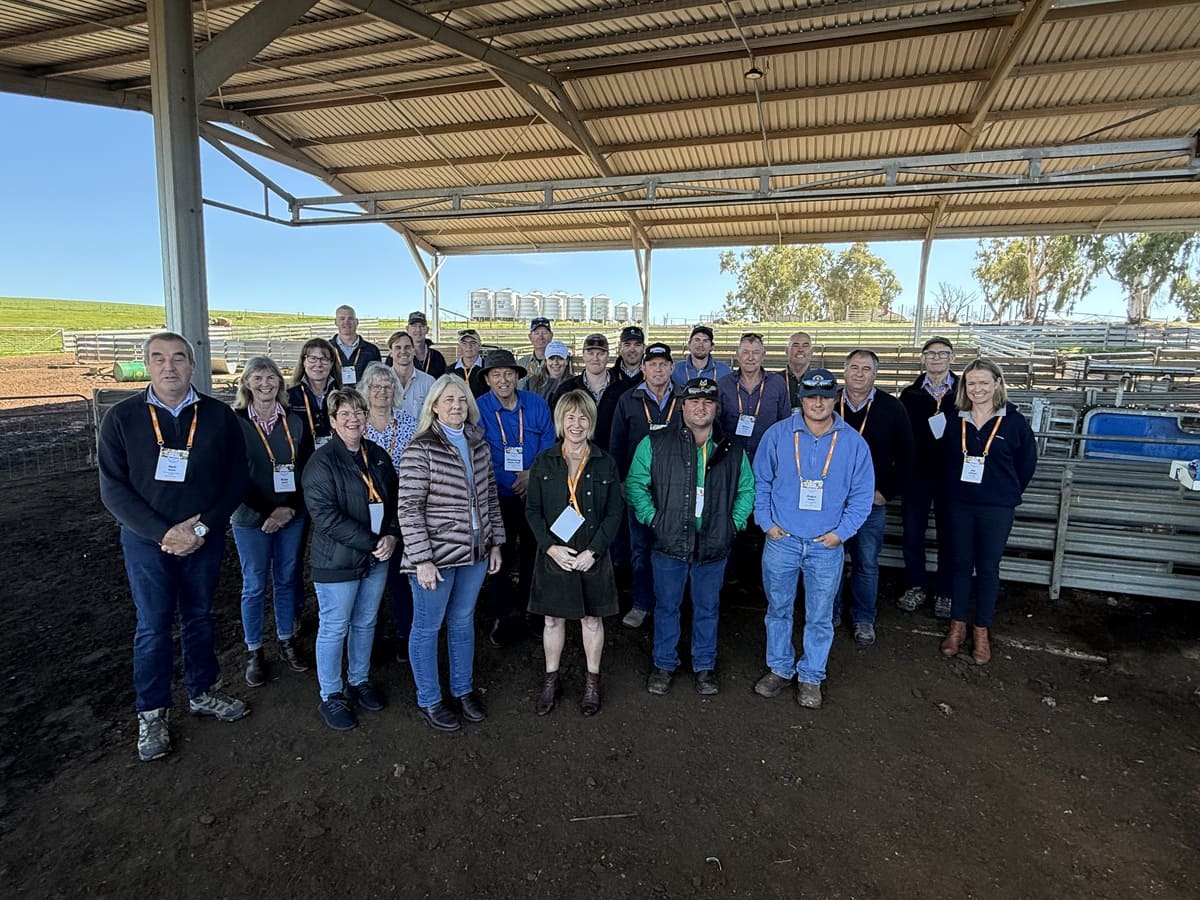
The Rabobank WA Sheep and Wool Tour cohort visiting Murray Hall’s operation.
Contribution through Rabo Client Council
Murray is also no stranger to the unique opportunities Rabobank provides its clients, and was previously a member of the inaugural Rabo Client Council.
“The Rabo Client Council was only a pilot back then, and we grew with it, and it with us,” he explains.
“When our Area Manager at the time, Phil Edkins, first raised the idea, and I got to see who else was involved, it was such a great peer group to be involved with - it was an opportunity too good to miss.”
The Rabo Client Council is made up of a group of innovative, forward-thinking clients who are passionate about making a difference in their communities, and support a range of activities designed to make a meaningful impact on the vibrancy and resilience of rural Australia.
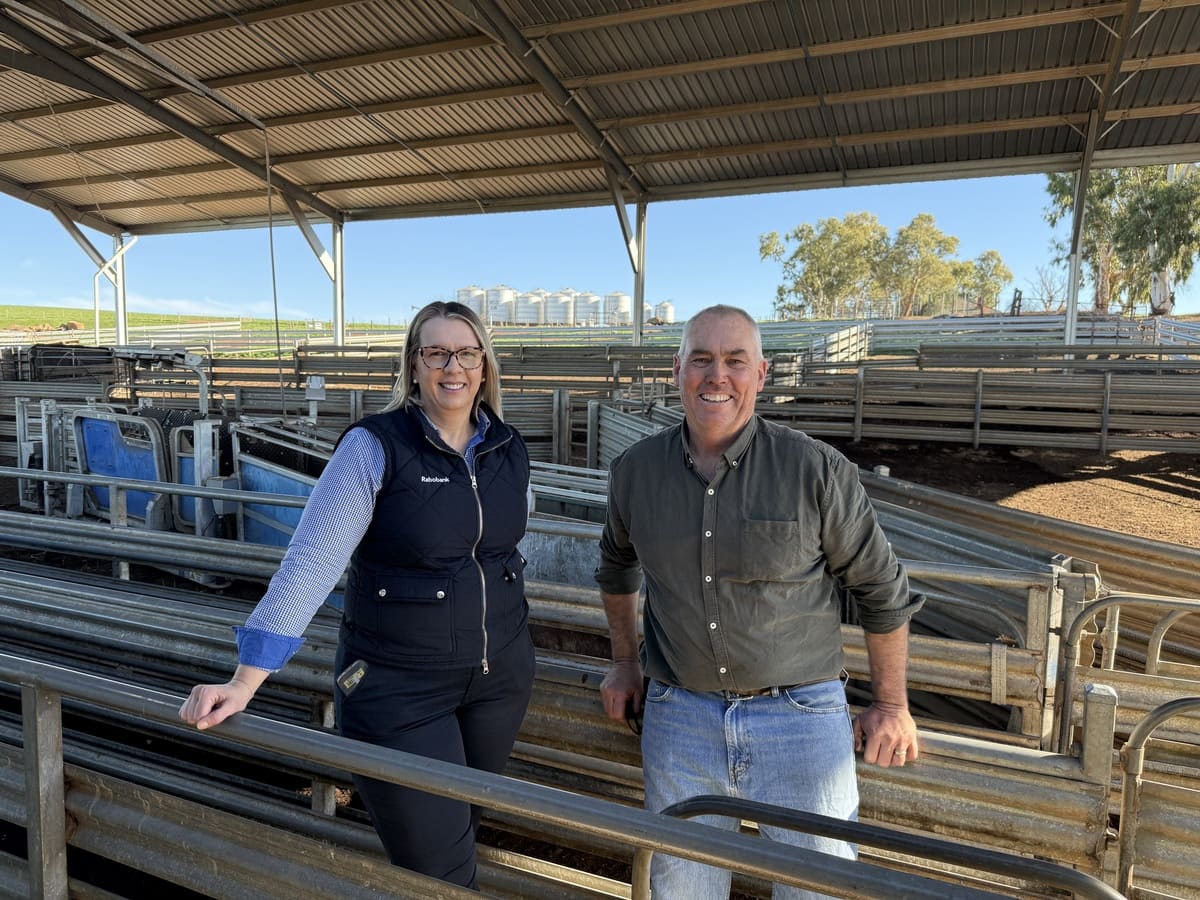
Murray with Rabobank Area Manager, Nat Purdy.
Across Australia there are six Rabo Client Councils, with client volunteers working with the bank to develop and deliver grass roots initiatives, and prioritise where funding can make the greatest impact within the community.
“The Rabo Client Council was a terrific opportunity to learn about so many issues that impact our industry and community, from the influence of social media to modernising succession – we shortlisted the key issues we wanted the bank to help us research and address, and interestingly, so many of our individual issues were consistent.”
One of Murray’s proudest achievements on the Rabo Client Council was initiating the Student Farm Experience Program, which later expanded into the Teacher Farm Experience Program.
“The Teacher Farm Experience Program aimed to increase the knowledge and confidence of STEM, HASS and agriculture educators to allow them to incorporate food and fibre production into their teaching programs – and ultimately help drive increased ag career curiosity amongst students.”
“By taking teachers out on-farm annually and providing them with a first-hand appreciation for agriculture we can hopefully create more momentum around careers in agriculture.”
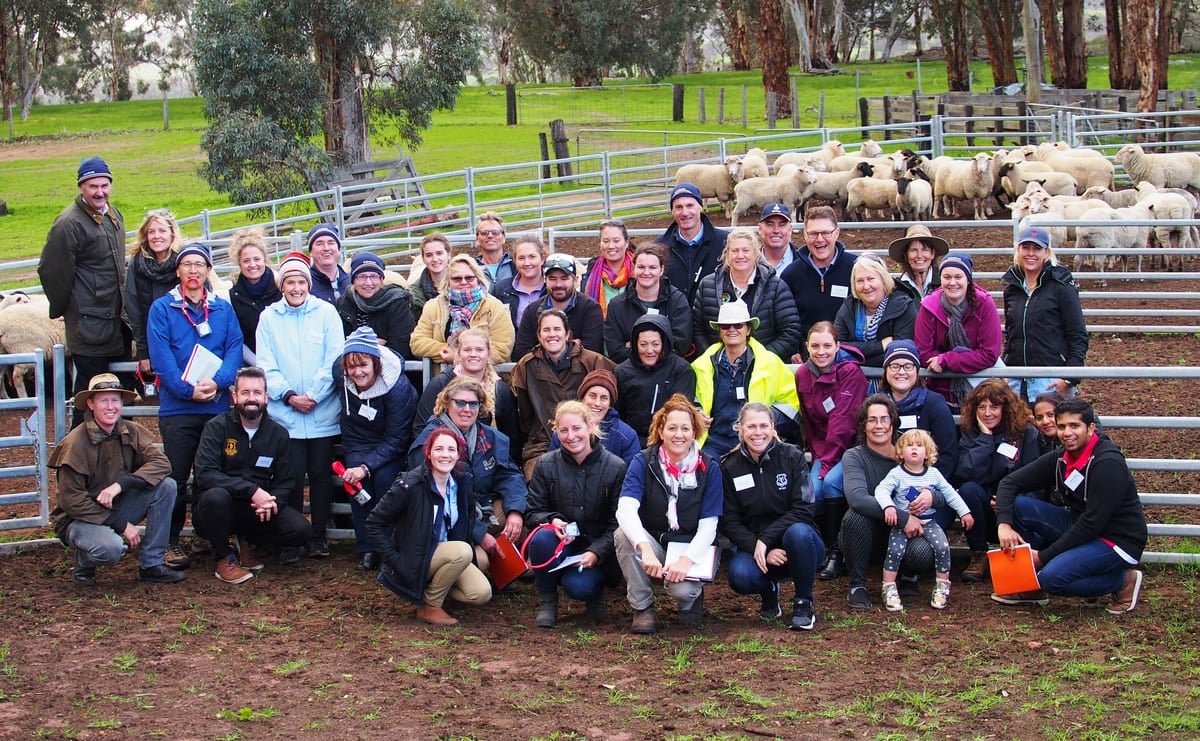
Participants of the Teacher Farm Experience Program, helping promote and showcase agriculture to WA teachers.
